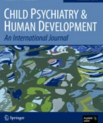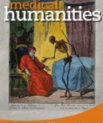Affective Arousal Links Sound to Meaning
New article published in Psychological Science
Abstract
Prior investigations have demonstrated that people tend to link pseudowords such as bouba to rounded shapes and kiki to spiky shapes, but the cognitive processes underlying this matching bias have remained controversial. Here, we present three experiments underscoring the fundamental role of emotional mediation in this sound–shape mapping. Using stimuli from key previous studies, we found that kiki-like pseudowords and spiky shapes, compared with bouba-like pseudowords and rounded shapes, consistently elicit higher levels of affective arousal, which we assessed through both subjective ratings (Experiment 1, N = 52) and acoustic models implemented on the basis of pseudoword material (Experiment 2, N = 70). Crucially, the mediating effect of arousal generalizes to novel pseudowords (Experiment 3, N = 64, which was preregistered). These findings highlight the role that human emotion may play in language development and evolution by grounding associations between abstract concepts (e.g., shapes) and linguistic signs (e.g., words) in the affective system.
Article
Link to article.
Press release from Cornell University here.
Twitter thread: https://twitter.com/MH_Christiansen/status/1283074693134770176
Contact:
Morten H. Christiansen, PhD
Professor in Cognitive Science of Language, School of Communication and Culture, Aarhus University
Professor, Interacting Minds Centre, Aarhus University
Professor of Psychology, Cornell University, USA
Senior Scientist, Haskins Laboratories, USA



